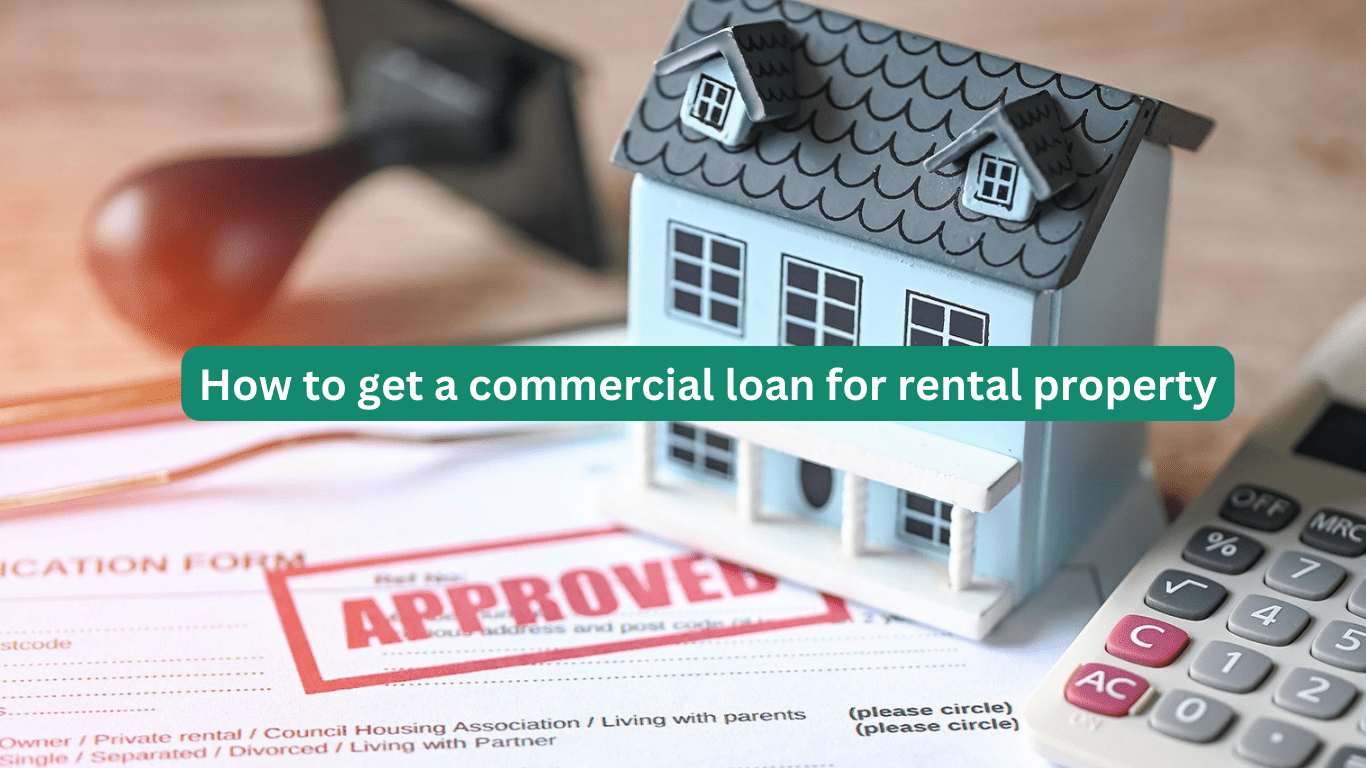While investment in rental property can be very lucrative, it is usually quite difficult to raise the needed funds. Here is where commercial loans help by offering the property investors a source of funding. In this guide, we will discuss all the important considerations that go into acquiring a commercial loan for a rental property-from understanding basic principles to running through the application process with success.
It will also elaborate on the procedure and stages that come along in approaching commercial loaning for a rental property that may be available.
Step 1: Know Your Numbers and Goals
Before diving into loan applications, conduct thorough self-assessment. Calculate your current financial standing, including:
- Credit score: Aim for a score of 680 or higher, as lower scores might result in higher interest rates or loan denial.
- Debt-to-income ratio (DTI): Ideally, keep your DTI below 35%. Lenders assess your ability to manage existing debt alongside the new loan.
- Liquid assets: Prepare reserves for down payment, closing costs, and potential vacancies.
- Investment experience: Highlight your experience in managing properties or related investments.
- Business plan: Develop a comprehensive plan outlining rental income projections, expenses, and exit strategy.
Step 2: Explore Loan Options
Various commercial loan types cater to diverse needs. Familiarize yourself with common options:
- Conventional loans: Offered by banks or credit unions, these have competitive rates and fixed repayment terms. They typically require a higher credit score and down payment (20-30%).
- SBA 504 loans: Guaranteed by the Small Business Administration, these offer long-term, fixed-rate financing for small businesses, often with lower down payments but stricter qualifying criteria.
- Portfolio loans: Issued directly by private lenders or investment firms, they provide more flexibility but often come with higher interest rates and origination fees.
- Hard money loans: These short-term, asset-based loans offer quick access to funding but incur significantly higher interest rates and fees. Use them cautiously and only for strategic situations.
Step 3: Choose the Right Lender
Shop around and compare offers from multiple lenders. Consider factors like:
- Interest rates: Fixed or variable, and how they compare to the current market.
- Loan terms: Loan duration, prepayment penalties, and other conditions.
- Loan amount: Ensure the loan covers purchase, closing costs, and potential renovations.
- Lender reputation: Research their experience with rental property financing and customer reviews.
- Relationship building: Choose a lender who understands your goals and offers guidance throughout the process.
Step 4: Prepare a Compelling Application Package
Assemble a strong application that convinces lenders of your creditworthiness and project viability. Include:
- Completed loan application: Fill it out accurately and comprehensively.
- Personal and business financial statements: Provide proof of income, assets, and debts.
- Tax returns: Both personal and business returns for the past 2-3 years.
- Property appraisal: Get a professional appraisal to establish the property’s value.
- Business plan: Showcase your in-depth research and projected financials for the rental property.
- Rental market analysis: Demonstrate the property’s potential income based on market trends.
Step 5: Navigate the Approval Process
Be prepared for the lender to conduct due diligence, including:
- Credit check: They will verify your credit score and history.
- Employment verification: Confirm your income and employment status.
- Property inspection: They might assess the property’s condition and marketability.
- Negotiation: Discuss loan terms and interest rates before finalizing the agreement.
Additional Tips for Success:
- Network with experienced investors and real estate professionals for insights and guidance.
- Consider seeking pre-approval from a lender to demonstrate your seriousness and gain leverage during negotiations.
- Maintain open communication with your chosen lender throughout the process.
- Don’t be afraid to ask questions and seek clarification on any aspect of the loan agreement.
Remember: Securing a commercial loan for a rental property requires preparation, planning, and due diligence. By understanding your financial standing, exploring loan options, choosing the right lender, and presenting a compelling application, you can increase your chances of securing the financing needed to achieve your real estate investment goals.
Check Out:
Understanding Commercial Loans

A commercial loan is not a residential loan by any means. The residential loan is the one meant for purchasing houses by the individuals for their own shelter, while a commercial loan is meant for the businesspeople or the individuals who intend to purchase a property as an investment means.
Types of Commercial Loans

It just pays to know what’s available in the commercial loan world. From your standard old mortgage variety through to Small Business Administration- or SBA-loans, there is a reasonable smorgasbord of investor choice. For rental properties, the name of the game is keeping the focus on loans that have been tailor-fit for an income.
Eligibility Criteria
Apart from diving into the very process of applying for a loan, the first step involves determining the criteria for eligibility. The lenders mainly consider credit scores, financial stability, and potential earnings that the property might bring in. If one wants to scrape by with the most desirable terms and conditions, then good health in one’s credit profile is of utmost paramount importance.
Preparing Documentation
It is important to understand what may affect the quantity of the loan. For reviewers, many of them consider the weight of the value of property and the financial ability of the borrower. The LTV refers to the loan amount as a percentage of the appraised value of the property.
Calculating Loan Amount
In the commercial loan market, variable interest rates exist. It’s advisable that before borrowing, you search the market for interest rates and bargain well for friendly terms. A lower interest rate and flexible terms in repayment make a great deal of change in the profitability of the rental property investment in the long run.
Interest Rates and Terms
There are variable interest rates in the commercial loan market. Before you borrow, it is advisable to search the interest rates in the market and bargain well for friendly terms. A lower interest rate and flexible terms in repayment can carry a huge impact on the profitability of the rental property investment in the long run.
Choosing the Right Lender
The source of the loan should be carefully considered. Compare different lenders, their reputation, the interest they are offering, user reviews, and more. Having loan options side by side provides a comparison that will help you know which best suits your investment results.
Application Process
Once you’ve chosen a lender, the application process begins. Follow a step-by-step guide, submitting all required documents promptly. Be prepared for potential challenges and proactively address any issues that may arise during the application review.
Approval and Disbursement
Upon successful approval, the disbursement process kicks in. Understand the timelines and conditions for fund release. Clear communication with the lender ensures a smooth transition from approval to actual disbursement.
Managing Repayments
Creating a robust repayment plan is crucial for long-term success. Consider the property’s cash flow and factor in contingencies for unexpected expenses. Being proactive in managing repayments reduces financial stress over the loan term.
Benefits of Commercial Loans for Rental Property

A commercial loan for your rental property can help you enjoy a number of benefits. Most of these types of loans have very attractive interest rates and terms that increase your overall potential for investing. Besides this, they provide you with a clear pathway toward expanding your portfolio to ensure maximum income generation.
Risks and Mitigations
Even with the many advantages, there are some risks associated with commercial loans. These very factors, at times, act against the owner when certain conditions arise, such as a fluctuating real estate market, downturns in the economy, or unexpected expenses. Mitigate the risks by keeping yourself current with changes, having financial reserves, and developing contingency plans.
Success Stories
Success stories based on real life keep one inspired and enlightened with practical tips. Consider reading through case studies of successful persons or businesspersons in your area who have used commercial loans to enhance their businesses in rental property investment. Take a leaf from such persons or companies and apply part of the same strategies in your investment journey.
Conclusion
In other words, taking out a commercial loan for rental purposes is a strategic step up in leveraging your real estate investment game. On a deeper note, knowing the nuances of the loan process, coupled with diligence in documentation and making informed decisions, really paves the way for profitable and sustainable rental property portfolios.
FAQs
What is the primary difference between a commercial loan and a residential loan for rental property?
Commercial loans are designed for income-generating properties, while residential loans cater to personal home purchases. Commercial loans often have different eligibility criteria and terms.
How important is a good credit score when applying for a commercial loan?
A good credit score is crucial. Lenders use it to assess your financial responsibility and determine the risk of lending. A higher credit score can lead to more favorable loan terms.
What are the common challenges in the commercial loan application process?
Common challenges include stringent documentation requirements, property appraisal discrepancies, and potential delays in the approval process. Being prepared can help overcome these challenges.
Can commercial loans be used for both residential and commercial rental properties?
Yes, commercial loans can be used for both residential and commercial rental properties. The key is to choose a loan type that aligns with the intended use of the property.
Are there government-backed programs for commercial loans similar to residential loans?
Yes, the Small Business Administration (SBA) offers government-backed programs that provide financial assistance to small businesses, including loans for commercial real estate ventures.

I am Henry, a professional in commercial financing with more than 10 of experience under my belt in this industry. Over the years, I have committed my tenure to the professional guidance of some of the businesses out there just like yours through the complex truths of a commercial loan process. I have developed such fervent interest and commitment to truly making it possible for many clients to get funding which enables them to develop and grow.











